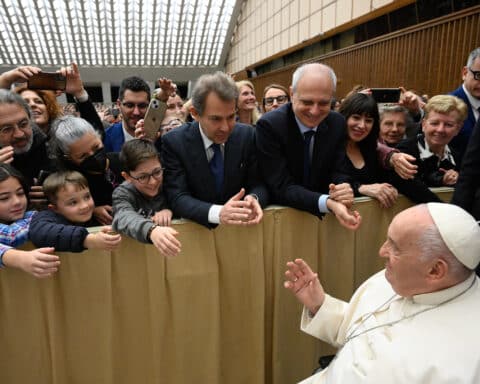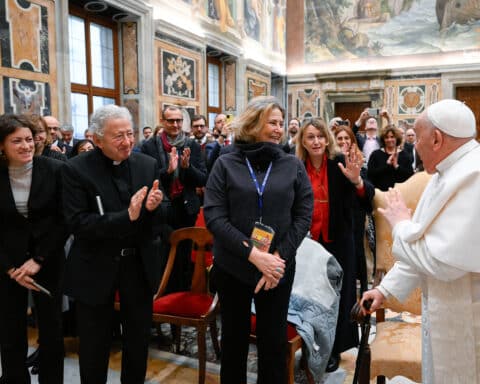
I have always been more comfortable with written communication than verbal. When I was 12 or 13, in anticipation of the stereotypical angst-ridden teen years to come, I bought my mom a small, purple, spiral-bound notebook. Over the years, whenever we had trouble talking to one another in person, I’d express my thoughts and feelings in its pages and leave it on her pillow. She would respond, leaving it on mine. We created our own little path toward better communication, forging it out of mutual love for the written word and mutual love for one another.
That anecdote seems so quaint given where technology has propelled us in the past 25 years. At my fingertips, I have multiple ways to talk face to face with someone on the other side of the planet. I can share my thoughts with thousands of people on Twitter or Instagram any time I feel like it. I can text my husband from the basement or the bathroom or the same room. We can talk to pretty much anyone pretty much anywhere at pretty much anytime.
It’s ironic, then, that at a moment when it’s never been easier to communicate with one another, we still manage to be so very bad at it. Our social media-fueled, me-first culture has elevated the “clever zinger” and dismissed listening. Hiding behind screens, we easily overlook the individual behind the handle. And if we do actually manage to connect with another person directly, and with empathy, we stumble over content.
And so I appreciated Pope Francis’ recent message for World Communications Day for two reasons. First, he calls us to a healthier form of communication — to actually encounter the individual with whom we are speaking, to listen and to seek understanding. “‘Come and see’ is the simplest method to get to know a situation,” he writes. “It is the most honest test of every message, because, in order to know, we need to encounter, to let the person in front of me speak, to let his or her testimony reach me.”
And second, because he challenges us to make sure that what we, as disciples of Jesus Christ, share with one another is the truth. Calling attention to the misinformation spread so easily and quickly on the internet, Pope Francis said: “All of us are responsible for the communications we make, for the information we share, for the control that we can exert over fake news by exposing it. All of us are to be witnesses of the truth: to go, to see and to share.”
That type of “discernment and responsibility for contents both sent and received” applies not just to a decision of whether or not to share a story on Facebook. It gets to the very heart of any effective communication. What we share, in big ways and in small, must always be true, and we have the responsibility of seeing that it is so. This applies when on social media, when gossiping with friends, when in the office and when at home.
By becoming people of encounter committed to the truth, 21st-century Christians might have a chance not only at being able to communicate easily, but at being able to do so well, too.
Gretchen R. Crowe is editorial director for periodicals at OSV. Follow her on Twitter @GretchenOSV.





